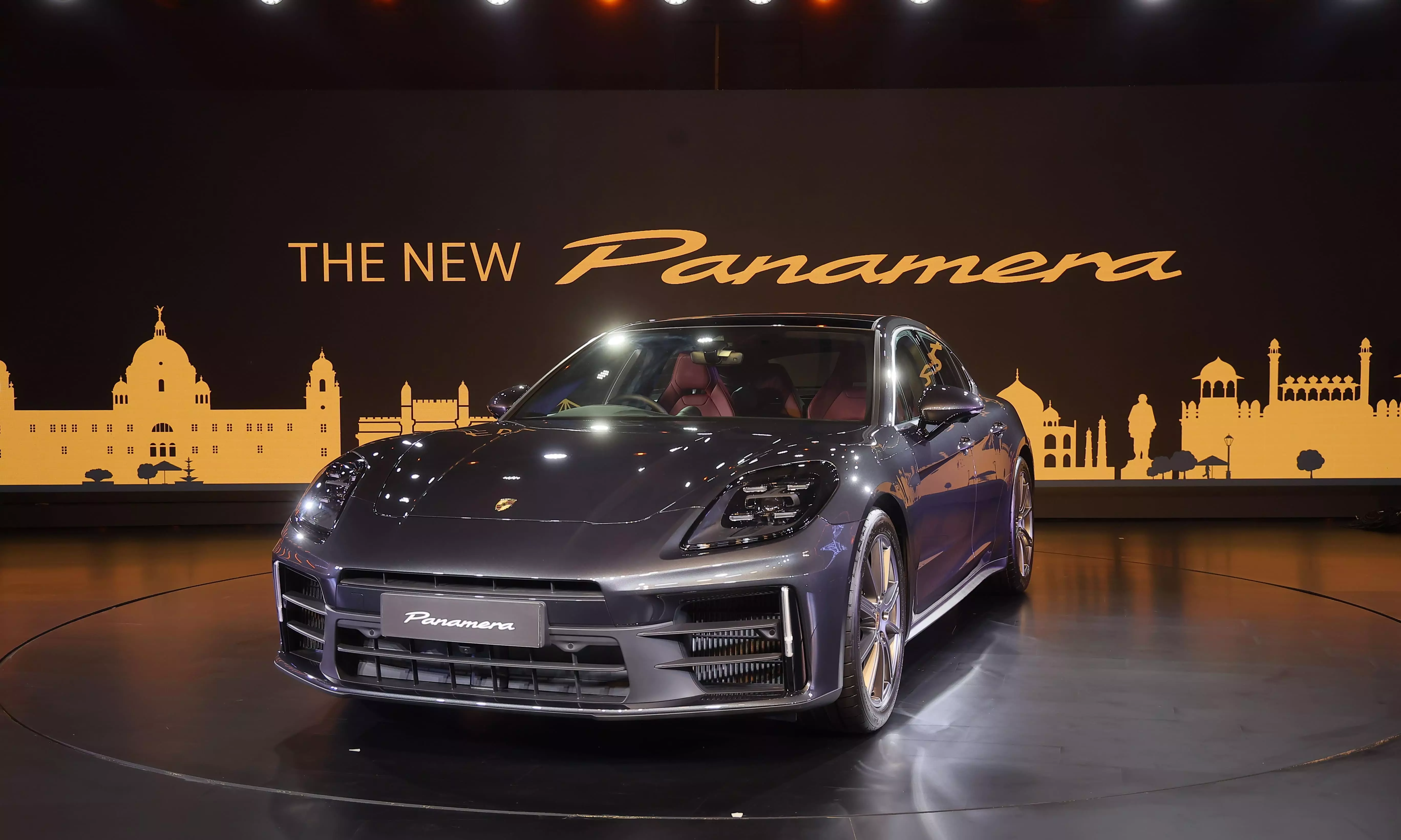
Hyderabad: The Porsche Panamera is entering its third model generation. The sports car manufacturer’s luxury sedan emphasises its sporting character with even more powerful drive systems.
The profile is enhanced by a fundamentally modernised operating concept and plenty of innovative technology. The technical yet elegant, dynamic design of the new Panamera gives the model line’s attractive proportions a fresh update. A fundamentally redesigned, driver-centred interior enhance the driving experience.
Superior feel with state-of-the-art suspension system
The new Panamera already comes with dual-chamber two-valve air suspension with Porsche Active Suspension Management (PASM) as standard. The two-valve technology separates the rebound and compression stages of the damper control and therefore offers an even wider range between comfort and sportiness: the system noticeably dampens impacts from transverse joints and road damage while at the same time ensuring more body stability in dynamic driving situations.
Modifications to boost pressure, fuel injection flow rate and ignition timing optimise the performance of the 2.9-litre V6 turbo engine. It now generates 260 kW (353 PS) and 500 Nm of torque – an increase of 17 kW (23 PS) and 50 Nm compared to its predecessor. This shortens the Panamera’s sprint to 100 km/h to 5.1 seconds and boosts its top speed to 272 km/h.
Luxurious and sporting inside and out
The new Panamera retains the characteristic lines and proportions of the model line. Its fundamentally revamped appearance lends the sports sedan an even more expressive and sporting look. Up front, an additional air intake above the number plate compensates for the increased air requirement of the drive systems. The redesigned window line in the side view reinforces the sedan character of the four-door sports car. The outer edges of the rear window are flush with the contour of the body, creating harmonious lines at the rear of the car.
The Porsche Driver Experience cockpit concept features the ideal balance between digital and analogue control elements and positions the input and output elements essential for driving along the driver’s axis. The gear selector lever is directly to the right of the steering wheel. The mode switch for the Normal, Sport and Sport Plus driving programmes and the assistance control stalks are also directly accessible to the driver. This means that they don’t need to take their eyes off the road in order to adjust the drive programmes and assistance systems.
An optional passenger display closely integrates the passenger into the driving experience. The 10.9-inch screen displays vehicle performance data on request. It also allows operation of the infotainment system. In order to avoid distracting whomever is behind the wheel, the passenger display cannot be seen from the driver’s seat.
Porsche is also equipping the Panamera with standard Matrix LED headlights. The high-resolution HD Matrix LED lighting system, which has more than 32,000 pixels per headlight, is available as an option. It offers completely new lighting features, such as dedicated lane brightening. The illumination range is up to 600 metres.
The new Porsche Panamera deliveries will start now. It offers extended standard equipment compared to its predecessor with two-valve dual-chamber air suspension, LED matrix headlights, ParkAssist, driving mode switch on the steering wheel, a cooled smartphone compartment with inductive charging function and an improved fine dust filter with GPS-supported, automatic air-recirculation function.
Porsche produces the new Panamera at its Leipzig factory. The Saxon production site is closely associated with the Panamera: from 2009 to 2016, the first generation of the four-door sports sedan was assembled there while complete production moved to Leipzig in 2016 with the introduction of the second generation. Modifications to accommodate the production of the third generation of the Panamera have been integrated into the plant over the past few months.
The new Panamera is available from INR 1,69,62,000






